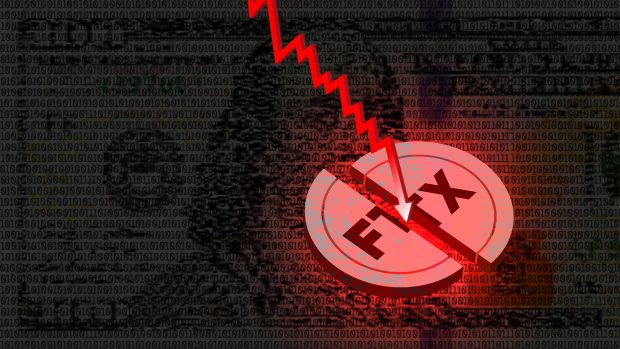FTX May Be Gone, but the Impact of Crypto on the CU Industry Is Just Beginning
OK, be honest. If you follow the news of the FTX crypto currency platform and the arrest of former Wunderkind Sam Bankman-Fried, you may be wondering if all that research you did, not to mention that new fancy title of VP of Digital Operations, just became useless, I’m here to tell you your expertise is needed as much now as it ever has been. Well, almost as much. In fact, there are many lessons to be drawn from the demise of FTX that can help shape the development of the crypto industry in a positive way for years to come.
Why am I so bullish on crypto? Well, to be clear, I’m not exactly bullish on crypto. In fact, I’m proud to say that two things I have never done are open up a Facebook account or purchase Bitcoin. But regardless of what, if any, virtual currencies are in use ten years from now, I will bet you that the Distributed Ledger Technology (DLT) that underpinned its use will be an increasingly integral part of the financial landscape for all financial institutions, irrespective of their size.
What makes DLT technology so attractive is that it allows two parties to validate and record a financial transaction without the need for a third party such as bank or credit union. The term cryptocurrency is a reference to the fact that every transaction is validated based on a unique cryptographic algorithm which is recorded on a computerized ledger. This ledger can either be open to the public or limited to a handful of people. As a result, it creates an efficient way to rapidly transact business in a way that eliminates most disputes. The same technology that validates the transfer of virtual currencies can be used to validate virtually any kind of transaction. Someday, consumers will buy houses over a blockchain using this technology and they won’t have to pay for a lawyer or be concerned about the validity of their title.
This is not the pipe dream of a technophile, in fact, most people who know me think I’m a bit of a luddite. Jamie Dimon correctly described cryptocurrencies as Ponzi schemes. But with much less attention, his firm recently executed its first cross-border currency transaction utilizing a public block chain.
So, does all this mean that the FTX fiasco was nothing more than a blip on the screen? Not at all. In fact, if the technology is to reach its fullest potential, we need a regulatory framework and, in the meantime, we need to make sure BSA experts continue to keep a vigilant eye out for potential misuses of the technology. DLT technology is a classic example of great technology that can be used to facilitate some very bad things. FinCEN has repeatedly put financial institutions on notice that cryptocurrencies can be used to facilitate crimes ranging from sex trafficking to ransomware attacks. The privacy and speed afforded by crypto transactions means that there will always be a market for the technology and the need to convert the virtual currency into cold, hard cash. That’s where your vigilance comes into play. With the consolidation of trading platforms triggered by FTX’s demise my guess is you will see more, not less, criminality facilitated with DLT as the activities of money launderers are pushed further underground.
There may also be some unique safety and soundness concerns. Silvergate, the state-chartered community bank which provided an innovative funding platform for FTX and other crypto currency traders, is being strained by a run on its deposits even though it doesn’t own cryptocurrencies. It is suffering from indirect concentration risk.
Many, but not all, of these issues can only be addressed with the development of regulations. Most importantly, we have to decide whether virtual currencies should be treated as securities, subject to the oversight of the Security and Exchange Commision – which would be my preference – or instead subject to the oversight of the CFTC, which is reportedly the preference of Sam Bankman-Fried. I rest my case.
Another reason we need regulation is simply so we can all use the same language, which is the most basic step in having any enforceable legal framework. For example, right now the NCUA primarily refers to DLT when it discusses these issues, while FinCEN refers to convertible virtual currencies (CVC). This type of terminological inexactitude creates needless confusion along the edges and makes it too easy for corporations to escape common sense oversight. For example, the SEC had to sue BlockFi Lending in order to make sure its consumers clearly understood that they were depositing their money into a federally insured bank. Unfortunately, a truly robust regulatory framework can only be accomplished with the passage of federal legislation and I’m not exactly optimistic about Congress’s ability to tackle big issues so long as C-SPAN’s programming resembles The Jerry Springer Show.
As this new financial ecosystem continues to evolve, NCUA and credit unions can take a bit of a victory lap. By the time NCUA issued its first guidance on the blockchain and the use of Distributed Ledger Technologies in which it allowed credit unions to work with third-party vendors to offer “electronic wallets” for members wishing to keep track of their cryptocurrency, bank regulators had already issued a series of opinions allowing banks to participate in a wide range of cryptocurrency activities. In the aftermath of FTX, these same regulators had to rush out a joint statement stressing the need for banks to mitigate the threats posed by cryptocurrencies to the larger economy.
This is one of the best examples I’ve seen in a while of how the industry’s not-for-profit status enabled it to take a more methodical approach to financial innovation than could or would ever be tolerated in the for-profit banking sectors.
Both models have their place and there is much that still needs to be done, both by regulators and individual financial institutions, as they explore the potential uses of DLT. In the meantime, credit unions should continue to explore this technology and its potential uses. To do otherwise would be the equivalent of ignoring the internet in the early 2000s.
 Henry Meier, Esq.
Henry Meier, Esq.Henry Meier is the former General Counsel of the New York Credit Union Association, where he authored the popular New York State of Mind blog. He now provides legal advice to credit unions on a broad range of legal, regulatory and legislative issues. He can be reached at (518) 223-5126 or via email at [email protected].
Credit: Source link


 Bitcoin
Bitcoin  Ethereum
Ethereum  XRP
XRP  Tether
Tether  Solana
Solana  Dogecoin
Dogecoin  USDC
USDC  Cardano
Cardano  Lido Staked Ether
Lido Staked Ether  TRON
TRON  Avalanche
Avalanche  Sui
Sui  Wrapped stETH
Wrapped stETH  Chainlink
Chainlink  Toncoin
Toncoin  Shiba Inu
Shiba Inu  Stellar
Stellar  Wrapped Bitcoin
Wrapped Bitcoin  Polkadot
Polkadot  Hedera
Hedera  WETH
WETH  Bitcoin Cash
Bitcoin Cash  Uniswap
Uniswap  Pepe
Pepe  Litecoin
Litecoin  LEO Token
LEO Token  Hyperliquid
Hyperliquid  Wrapped eETH
Wrapped eETH  NEAR Protocol
NEAR Protocol  Internet Computer
Internet Computer  Ethena USDe
Ethena USDe  USDS
USDS  Aptos
Aptos  Aave
Aave  Mantle
Mantle  Bittensor
Bittensor  POL (ex-MATIC)
POL (ex-MATIC)  Cronos
Cronos  Render
Render  Ethereum Classic
Ethereum Classic  Artificial Superintelligence Alliance
Artificial Superintelligence Alliance  Virtuals Protocol
Virtuals Protocol  Arbitrum
Arbitrum  Filecoin
Filecoin  Ethena
Ethena  MANTRA
MANTRA  WhiteBIT Coin
WhiteBIT Coin
Comments are closed.